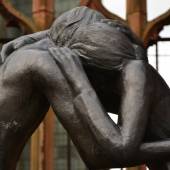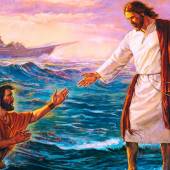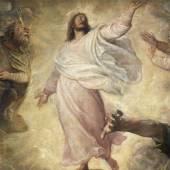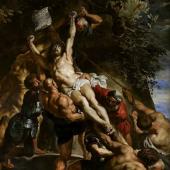The Poor and the Stranger
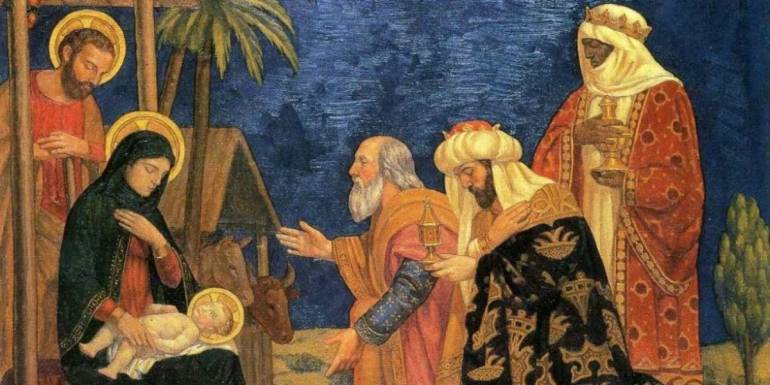
Shepherds on Christmas and Magi from the East on Epiphany
Isaiah 60:1-6, Ephesians 3:2-3a, 5-6, Matthew 2:1-12
A week ago, we celebrated the Feast of Christmas. Today, we celebrate the Feast of the Epiphany. At Christmas, we received a gift. Today, on the Feast of the Epiphany, we open the gift and discover that the gift is not just for us but for everyone. The child born in Bethlehem was not just to be “king of the Jews” but “savior of the world.” And so, the Feast of the Epiphany underscores the universal significance of what would have been an obscure happening in a stable in the little town of Bethlehem in Judea some 2,000 years ago.
The word “Epiphany” comes from the Greek word, which means "shining forth, manifestation,” or “showing.” And so, today’s feast celebrates the “manifestation” or the “showing forth” of Jesus not just to the Jewish nation, the chosen people of God, but also to the non-Jews, or the “Gentiles,” the “pagans,” or the “unchosen people” of God. Today’s feast, then, underlines the inclusivity of God’s offer of salvation. God offers salvation to everyone, including outsiders, strangers, foreigners, and those who did not originally belong to the chosen people of God. Those called to be God’s children are not just those who belong to one nation, but all people of any nation and any culture. This is the message of today's mass.
In the first reading, the Prophet Isaiah says that the light of the newborn child shines not just upon Israel but upon all peoples. “But upon you the LORD shines, and over you appears his glory. Nations shall walk by your light, and kings by your shining radiance” (Is 60:2-3). This universality is signified in the Gospel reading by the “magi from the East” who represent all peoples and cultures of the world. "
All nations shall fall prostrate before you, O Lord," is the response to the Responsorial Psalm. And in the second reading, St. Paul explains that this is the mystery made known to him by revelation, namely, “that the Gentiles are co-heirs, members of the same body, and co-partners in the promise in Christ Jesus through the gospel.”
It is interesting to note that the first ones to come and adore the Child born in Bethlehem were poor shepherds (according to the Gospel of Luke) and strange “kings” from the East (according to the Gospel of Matthew). This happens to tie in with today’s two missionary challenges as laid out by Pope Francis in his Apostolic Exhortation, Evangelii Gaudium (EG) — that is, the challenge of the Poor and the Stranger, or the challenge of the continuing poverty of millions of our brothers and sisters (see EG 186-216), and the challenge of the increasing multiculturality of our world (see 71-75).
Today, then, Pope Francis asks us to seek to encounter the “other,” those other than us or those different from us—those socio-economically different from us: the poor, the marginalized, the excluded, the outcast; and those culturally different from us: the stranger, the foreigner, the outsider, the migrant, the refugee. As Church, we are called to heed the summons of the Poor and the Stranger, and to listen to the cry from the margins (Poor) and from the borders (Stranger).
This will require, like the Magi in today’s gospel reading, leaving our comfort zones and embarking on a journey to seek the Child Jesus, born on the periphery of Jerusalem, in the little and insignificant town of Bethlehem. Often, this journey of seeking the Christ Child will be perilous and risky, uncertain and unclear, because it will be a journey from the familiar and the known to the unfamiliar and the unknown. And we can stray from the path and wander off into the centers of power, like Herod’s palace in Jerusalem.
The glamour of wealth and prestige can seduce us, and the powerful will try to enlist us into their evil schemes and plans. We must resist the allure of power and stay focused on the guiding star until it leads us to the stable in Bethlehem, where we will find the Child Jesus among the poor shepherds and the kingly strangers from the East. Unlike the “Kings” from the East, we will have no gifts of gold, frankincense or myrrh to offer. We will instead need to offer our faith, hope and love.
This encounter with the Christ Child will be unlike any other. It will allow us to see another face of God—the unfamiliar face of God, which challenges us and disturbs us—and not the familiar face of God, which makes us comfortable and complacent. It will lift us out of our customary experience of God and give us a new sense of the nearness of God. It will be a life-changing encounter. As a result, we will undergo a transformative change, similar to the Magi from the East who returned home by taking a different path.
Christmas with the poor shepherds and Epiphany with the strangers from the East, the summons of the poor and the Stranger, the challenge of poverty and multiculturality, the cry from the social margins and cultural borders—this is an invitation to seek the “other” face of God, not the familiar face of God that leads to stagnation and weariness in our Christian faith, but the unfamiliar face of God that provokes growth and newness in our Christian faith.
Today, the Feast of the Epiphany, may we see the star that beckons us to search for the Lord among the Poor and the Stranger. And may our encounter with the Christ Child in the Bethlehems of our world renew our faith, hope and love.
Radio Veritas Asia (RVA), a media platform of the Catholic Church, aims to share Christ. RVA started in 1969 as a continental Catholic radio station to serve Asian countries in their respective local language, thus earning the tag “the Voice of Asian Christianity.” Responding to the emerging context, RVA embraced media platforms to connect with the global Asian audience via its 21 language websites and various social media platforms.









